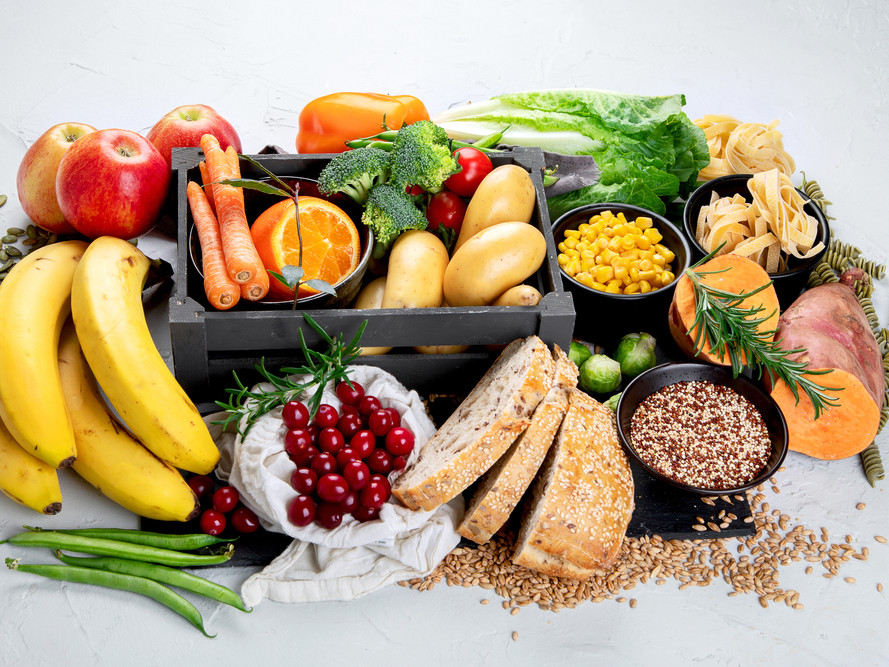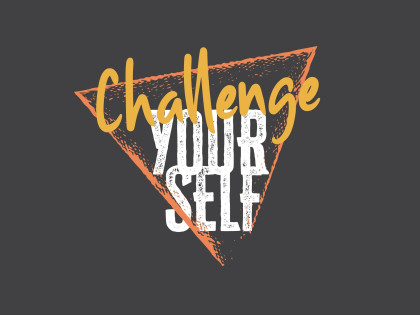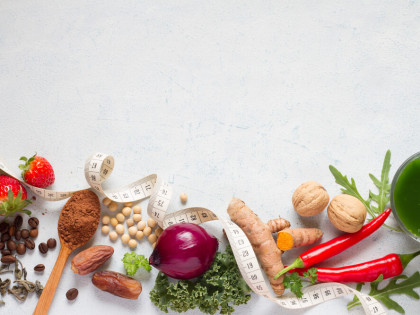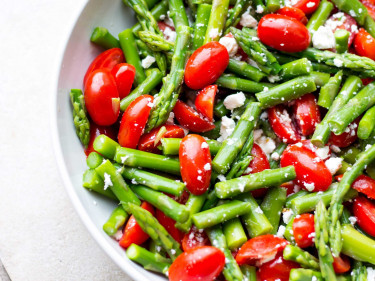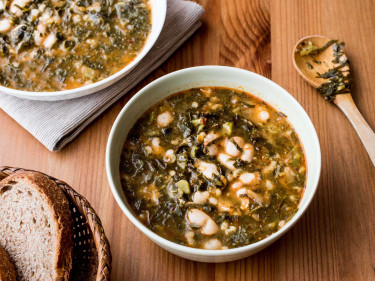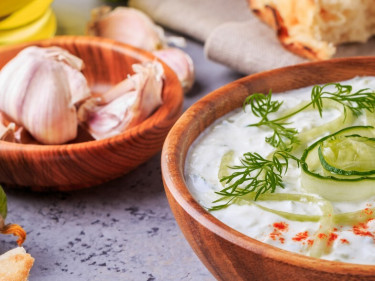The foods you eat make a big impact on your health and wellbeing. It can be tempting to ‘vow’ to make drastic changes to your dietary patterns and grab on to the latest fad diet, but the problem is that it will cost you more time, money, not to mention your sense of wellbeing. Making small, sustainable changes to the foods you usually eat has a big impact on your energy levels, ability to think clearly, gut health, skin health, sports performance, and your personal sense of wellbeing, not to mention your overall health as well.
In response to the areas of your life that you wanted help from No Money No Time to improve on, we wanted to show you what the research says about how improving your diet quality and variety can improve your sense of wellbeing and physical performance. We have also included tips to help you get started:
1. Having more energy
The nutritional quality of the foods you eat, and the amount you are eating, influences whether you feel tired and lethargic, or ready to tackle each day.
The majority of food that you eat should come from the five food groups as these are rich in the vitamins, minerals and fibre your body needs to function properly. Complex carbohydrates found in foods such as wholegrain and wholemeal breads, cereal, rice and pasta, as well as vegetables and fruit, are a major source of energy that your body uses to fuel muscles and your organs including your brain, lungs and heart. These foods are also good sources of some B group vitamins that are needed to convert food into energy that power your body. Low glycemic index (GI) carbohydrates are digested and absorbed more slowly from the gut, which leads to a slower rise in blood sugar levels after eating and can help you feel full for longer.
Eating a wide variety of foods within the ‘basic 5’ groups helps you meet vitamin and mineral needs. Find out more about the foods to eat for better energy levels here.
2. Improve your mental clarity, and your mental health
Want to think more clearly, improve your memory and protect your brain function? Try including foods that are good sources of flavonoids, compounds found in many fruits and vegetables, including citrus fruits, apples, kale, onions and legumes, isoflavones found in soy products, dietary nitrates abundant in beetroot and green leafy veggies, and foods high in B-group vitamins, including salmon, chicken, liver, green leafy vegetables, eggs and fortified breads and cereals. The brain also needs enough fuel to function, and to provide sustained energy throughout the day to avoid that feeling of your batteries running low. Rather than choosing foods that are high in refined carbohydrates, like highly processed snacks, take-aways, and sugar-sweetened drinks, include carbohydrates that are based on wholegrains, and are lower GI such as wholegrain breads and pasta, oats, fruits, yoghurt, milk, beans and lentils.
The good news is that the same foods that are high in vitamins, minerals and flavonoids also have an important impact on your mood, and may help reduce the symptoms of depression, and preserve brain health as you age.
Find out more about foods to eat that can help you with sharper thinking here.
3. Improve your gut health
Improving your gut health can have positive effects upon mental health, and immune function, with research suggesting the importance of gut health in relation to mental health, digestive health and cardiovascular health. Improving your gut health by regularly including foods rich in dietary fibre, such as oats and whole grain breads and cereals, fruits and vegetables (leave the skin on), legumes including chickpeas and lentils at every meal.
What about the role of prebiotics and probiotics in relation to gut health? Prebiotic foods, which contain complex carbohydrates, inulin and resistant starch, provide fuel for the good bacteria that lives in our gut. Good sources of prebiotics include grains like barley, wheat and oats, as well as some fruits and vegetables including beetroot, green peas, onion, nectarines, grapefruit and dates. Probiotic foods are those that contain good bacteria, and include foods like live culture yoghurt, kefir, sauerkraut and kimchi. Whether probiotics have a beneficial effect on gut health remains unclear and is an area of ongoing research.
To improve your gut health, have a balanced way of eating that includes a variety of fruits, vegetables, whole grain breads, pastas, and cereals such as oats, as well as nuts and seeds can help in creating a healthy gut environment.
Find out more about the foods to eat for a healthy gut here.
4. Clearer, healthier skin
The health of your skin is influenced by several factors, such as pollution and the sun, while some are related to what you eat, including the quality and composition of your food. Rather than reaching for collagen supplements, eat foods rich in protein such as lean meat, chicken, eggs, cheese, tofu and legumes. These foods provide your body with the amino acids needed to make collagen. Collagen also requires vitamin C to make it a stable structure, which you can find in foods such as broccoli, Brussel sprouts, capsicum, tomatoes, spinach, kiwi fruit, lemons and oranges.
Other nutrients that can help in keeping your skin healthy include zinc found in fish, chicken, meat and legumes, Vitamin A found in oily fish, egg yolks, cheese, tofu and wholegrains, along with Beta-carotene which is found in plants and converted to Vitamin A in the body, as well as foods rich in polyphenols, found in fruits, vegetables, herbs and spices.
Although more evidence is needed, the influence of the foods you eat on severity of acne suggests that acne may be improved by eating foods with a lower GI, including wholegrain breads and pastas, apples, bananas and oats, eating a wide variety of fruits and vegetables, losing weight if you are overweight, limiting your intake of fried foods and those high in saturated fat, and lowering your intake of dairy products (except cheese).
Find out more about the foods to eat to support healthier skin here.
5. Support immune function
Your body’s immune system requires vitamins and minerals to fight infections. You can read more about the role that Vitamins A, B, C, D and E, and minerals including selenium, iron and zinc have in optimising immune function here. Eating a rainbow of fruits and vegetables and including foods from the core food groups everyday will boost your intake of these essential vitamins and minerals. Which might look like this ‘day on a plate’.
Find out more about foods that can support healthy immune function here.
6. Perform better in your chosen sport
Whether you are a recreational athlete or not, being active and exercising increases the amount of energy you need, and hence the amount of food you need to eat. The type and duration of the sport or exercise you do influences the amount of foods containing carbohydrates and protein you need, as well as how much water you need to drink to fuel your body during exercise and after to support recovery and repair.
For better sports performance, take a look at how your current eating stacks up against our pre and post training fueling recommendations:
- Fuel well for the activity you’re planning to do. What you need to eat for a moderately paced walk is different to that required if you’re going for a one-hour high intensity workout.
- Practice the 3Rs of post-exercise nutrition. Refuel, repair and re-hydrate.
Find out more about foods to eat that can support you in performing better in sport here.
Here are our tips to improve your nutrition and help make you year healthier:
- Take the Healthy Eating Quiz for a personalised review of your eating habits and recommendations on how to improve your diet quality.
- Maintain a regular schedule for eating, aiming for three meals a day, and adding in healthy snacks to meet your daily serves of the five food groups. Starting with a balanced breakfast.
- Fill half your plate with vegetables at each meal, and snack on fruit. Both are good sources of phytonutrients, nitrates, vitamins, minerals and fibre.
- Choose low GI sources of carbohydrate, wholegrains, and include vegetables at most meals to get a sustained release of energy
- Include a source of lean protein such as chicken, fish, tofu, eggs, yoghurt, cheese or legumes at each meal.
- Swap foods and oils that are high in saturated fats such as fatty meat and coconut oil for foods and oils that contain mono- and polyunsaturated fats such as extra virgin olive oil and fatty fish such as salmon or mackerel.
- Consider the food and timing of your meals around your activity levels and sports to optimise your performance and support your recovery.
- Aim to drink of 2L of water every day, or enough so that your urine in the colour of straw.



